
Analysis proves patience is needed to properly measure the impact of a grant
Posted on 05 Mar 2026
Posted on 02 Sep 2025
By Kathy Richardson, executive director, and Jen Riley, chief impact officer, Our Community
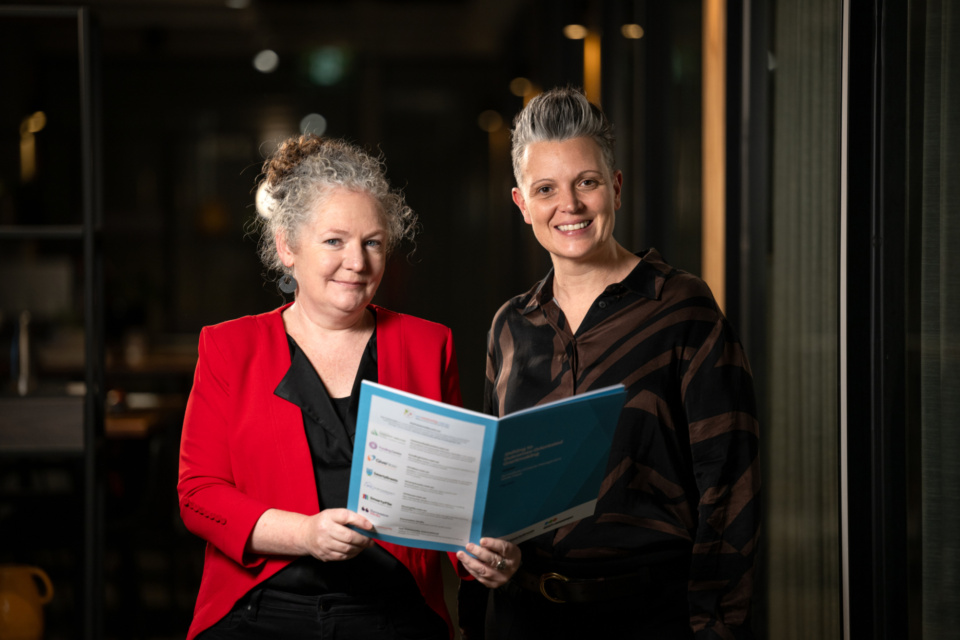
Ezra Klein and Derek Thompson’s bestseller Abundance is quietly circulating through the upper ranks of the Australian Public Service.
Its central warning – that governments have become tangled in process, losing sight of what they’re trying to achieve – has found ready resonance at a time when ministers and mandarins alike are rediscovering the lost art of focusing on outcomes. But rediscovery must be followed by reform.

The Institute of Grants Management (a sibling to Our Community’s SmartyGrants enterprise) has recently published its latest white paper: Shifting to Outcomes-Orientated Grantmaking.
Underpinned by Our Community’s two decades of experience in developing grant management software and improving grantmaking efficiency and strategy, the white paper offers a pathway from a system of government funding based on compliance metrics to one striving for real-life changes. In other words, a pathway from outputs (“400 women aged 75–85 attended 26 weekly strength training sessions”) to outcomes (“300 women aged 75–85 reported increased mobility and independence, and enhanced quality of life, as a result of attending 26 weekly strength training sessions”).
In many ways, the white paper arrives at the perfect moment. The Assistant Minister for Treasury, Dr Andrew Leigh, has placed renewed focus on the evaluation of government programs. The Economic Reform Roundtable, convened by Treasurer Jim Chalmers, stems from growing alarm at Australia’s stagnant productivity levels. The Treasurer’s wellbeing budget agenda insists we must measure what truly matters. But we cannot measure what we do not define. And for too long, government grant programs have failed to define – let alone evaluate – their intended outcomes.
The shift also aligns with recent updates to the Commonwealth Grants Rules and Principles 2024, which now explicitly require an outcomes orientation. Principle 4 emphasises that grant administration should define expected outcomes, measure actual change, and ensure that performance frameworks are linked to strategic goals and are clearly communicated. The desire for outcomes-focused funding is no longer aspirational – it’s official government policy.
"Evaluation is often underfunded, sporadic, and siloed from decision-making."

Our best estimate is that Australia spends $125 billion annually on grants. But ask most grant administrators – or even ministers – what changed as a result of their program, and you’re likely to get anecdotes, spending stats or output tallies: how much was spent, how many sessions were delivered, how many widgets made. It’s a situation reminiscent of Klein and Thompson’s critique: a bureaucracy hyper-optimised for governance inputs, but blind to societal outcomes.
This is not because public servants aren’t committed. It’s because their systems, incentives and data infrastructure do not support an outcomes orientation. Risk aversion leads to box-ticking. Measurement is equated with auditing. Evaluation is often underfunded, sporadic, and siloed from decision-making.
Our white paper diagnoses this problem and, more importantly, offers viable solutions.
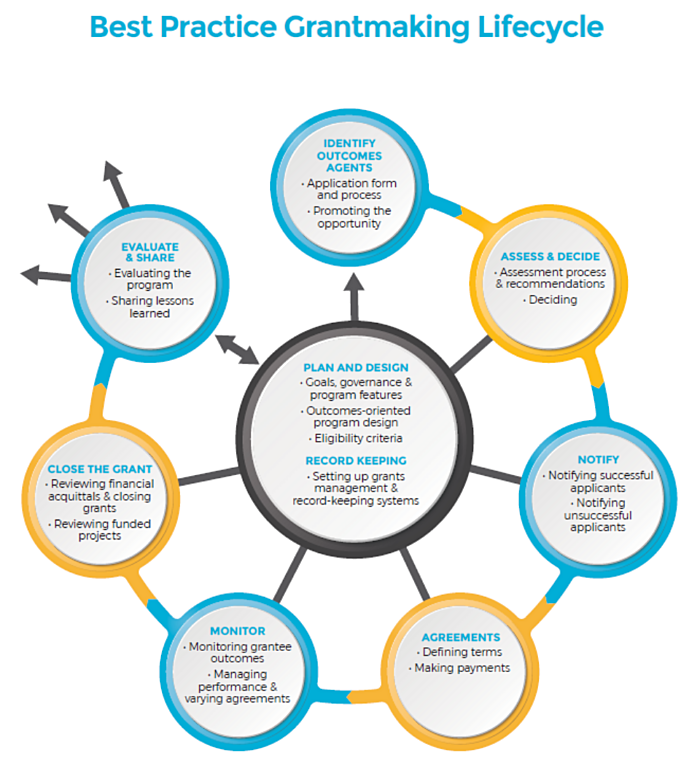
At the heart of our approach is a deceptively simple question: What changed?
To answer it, we propose a tweaking of the entire grantmaking lifecycle – from planning and design to evaluation and sharing – all seen through the lens of outcomes. This means clearly articulating desired outcomes from the outset, selecting grantees based on their capacity to deliver those outcomes, tracking both qualitative and quantitative data throughout the funding period (commensurate with and proportionate to the style and level of funding), and closing the loop with structured, standardised reporting.
The white paper offers practical templates, real-world case studies, and – crucially – tips for operationalising the learning, primarily through adoption of the SmartyGrants Outcomes Engine. SmartyGrants, a proudly Australian grants management solution, is already used by over 800 funders to distribute many billions of dollars across the world, including more than 220 government funders. More than 160 funders are now tracking outcomes directly through the system. In other words, this is not theoretical. It is already happening.
Our white paper also provides guidance on balancing rigour with feasibility. Not every grant needs a randomised controlled trial. But the funder behind every grant should have a theory of change (or rationale), a sense of who the beneficiaries are, and, later, some form of evidence – however humble – about what difference the grant made. We advocate starting small and scaling as confidence grows.
The timing of this new focus on outcomes is not incidental. As the Australian Government grapples with productivity stagnation, climate complexity and intergenerational equity, it is increasingly clear that good intentions are not enough. We need to know what works.
Shifting to outcomes-oriented funding allows governments to
The importance of this approach was underscored by the Assistant Minister for Productivity, Competition, Charities and Treasury, Dr Andrew Leigh, who launched the white paper at the inaugural Grant Impact Forum, held in Melbourne in June.
In his speech, Dr Leigh described the paper as “a call to be stewards of change, not just stewards of money,” highlighting that while outputs matter, they are the means, not the end. His remarks echoed the central argument of the white paper: that robust evaluation depends on defining clear outcomes and collecting consistent, standardised data. If we don’t know what outcomes we’re aiming for, we can’t evaluate them. If we don’t collect comparable data, we can’t make comparisons across programs. And if we punish failure more than we reward insight, we can’t expect honest reporting.
Dr Leigh’s remarks – and the growing national appetite for measuring what matters –reinforce the case for a seismic shift in funders’ thinking and systems – one that values learning, impact and accountability in equal measure.
As more funders adopt structured, outcomes-focused approaches, the opportunity arises to build something even more powerful: a shared evidence base. That’s why we’re working towards the creation of a Centre for What Works – a hub where anonymised, aggregated grant data can be used to help answer key questions: What works? For whom? In what context?
This would represent a radical evolution in how government funding drives public value. It would support learning not just within programs, but across portfolios and jurisdictions. It would allow the best ideas to be scaled up, and poor performers to improve or adapt.
This is the kind of infrastructure that productivity growth – and public sector legitimacy – depend on.
The shift to outcomes-oriented grantmaking is not a silver bullet. It requires patience, capability-building and cultural change. But it is eminently achievable. The tools now exist. The case has been made. And the demand – across departments, ministers and the broader community – is palpable.
As Abundance reminds us, we’ve spent too long measuring effort instead of effect. It's time to refocus on what actually changes.
Kathy Richardson is executive director of the Institute of Grants Management, a sibling to SmartyGrants, an Our Community enterprise. Jen Riley is the chief impact officer of Our Community and SmartyGrants.
__
Shifting to Outcomes-Orientated Grantmaking is published by the Institute of Grants Management (IGM), part of the Our Community group of enterprises, which also includes SmartyGrants. Through the IGM, we are distilling and disseminating all we’ve learnt about exemplary grants management over more than two decades of work with funders and their grantees. Through SmartyGrants, we’ve embedded proven practices and strategies into grantmakers’ favourite tech tool.

Posted on 05 Mar 2026

Posted on 15 Dec 2025
A Queensland audit has made a string of critical findings about the handling of grants in a $330…

Posted on 15 Dec 2025
The federal government’s recent reforms to the Commonwealth procurement rules (CPRs) mark a pivotal…

Posted on 15 Dec 2025
With billions of dollars at stake – including vast sums being allocated by governments –grantmakers…
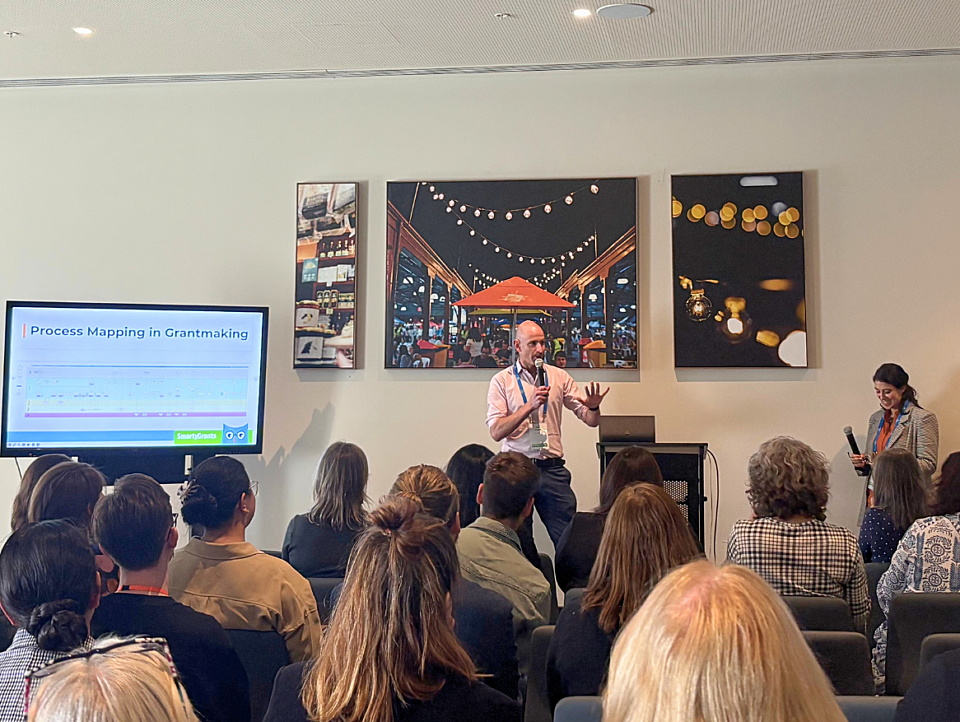
Posted on 15 Dec 2025
Nearly 100 grantmakers converged on Melbourne recently to address the big issues facing the…
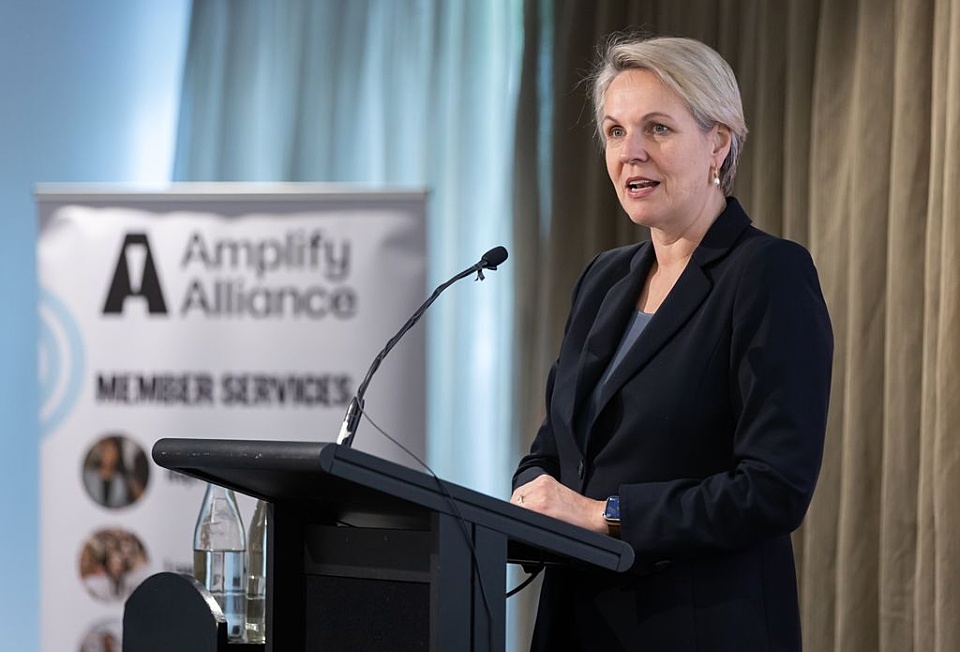
Posted on 15 Dec 2025
The federal government is trialling longer-term contracts for not-for-profits that deliver…

Posted on 10 Dec 2025
A major new report says a cohesive, national, all-governments strategy is required to ensure better…

Posted on 10 Dec 2025
Just one-in-four not-for-profits feels financially sustainable, according to a new survey by the…
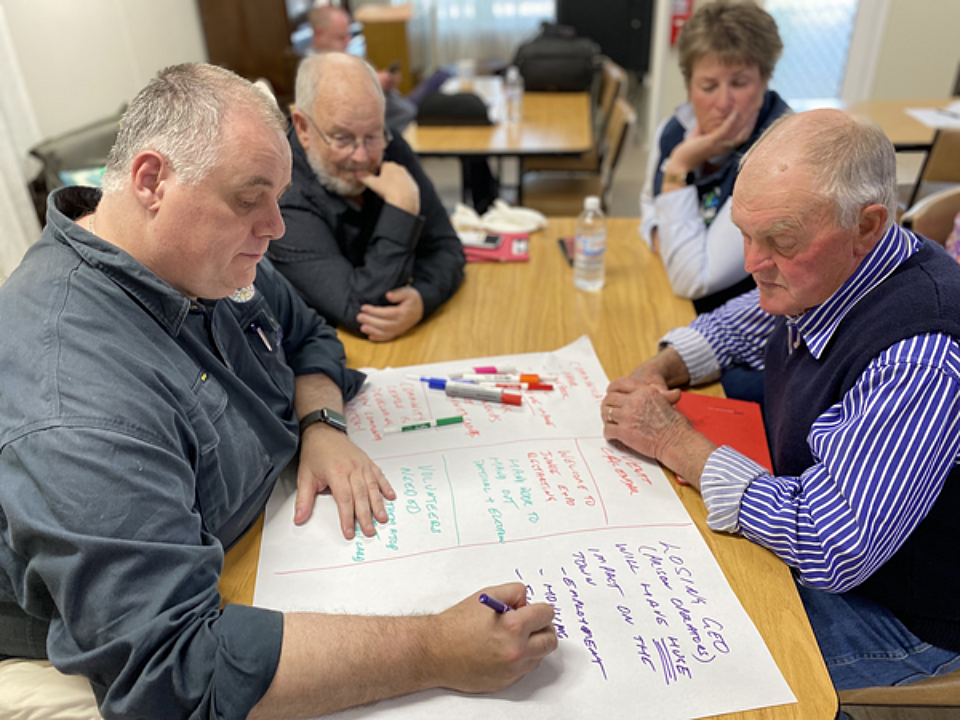
Posted on 10 Dec 2025
The Foundation for Rural & Regional Renewal (FRRR) has released a new free data tool to offer…

Posted on 08 Dec 2025
A pioneering welfare effort that helps solo mums into self-employment, a First Nations-led impact…

Posted on 24 Nov 2025
The deployment of third-party grant assessors can reduce the risks to funders of corruption,…

Posted on 21 Oct 2025
An artificial intelligence tool to help not-for-profits and charities craft stronger grant…